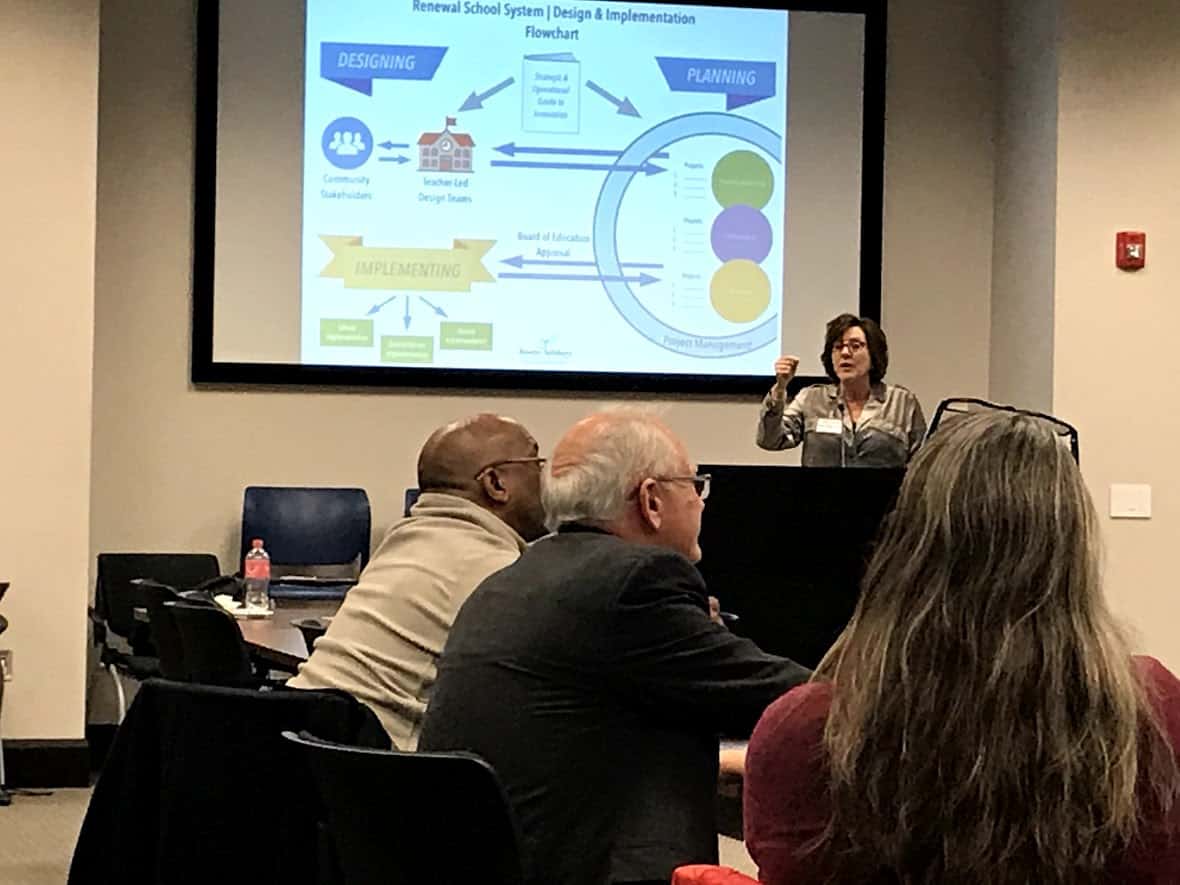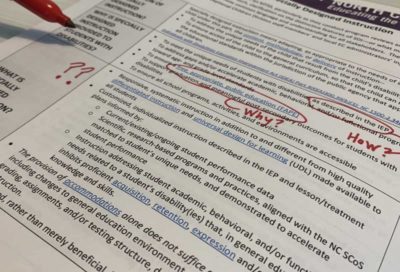
With year one as a renewal school district in the books, Rowan-Salisbury School System (Rowan-Salisbury) Superintendent Lynn Moody will present an update to the State Board of Education that will include summaries from district-wide pre-planning and individual school plans — as well as a road map of where the district is headed next.
“We’ve had flexibilities around curriculum to make some changes there and focus more on students and student experiences,” Rowan-Salisbury Board of Education Chair Joshua Wagner said. “There’s been a lot more emphasis on professional development for teachers, and we’ve also had a lot of new teacher groups that have been organized at the school level to help direct how renewal moves forward in the future — whereas in the past that would have been done more administrative-down.”
The renewal school district designation gives all schools in the district charter-like flexibilities. It was created by the General Assembly before last school year and adopted by the Rowan-Salisbury Board of Education June 28, 2018.
The state law allowed the school district with the highest percentage of restart schools at the time to become a “renewal school district.” A Restart school is a continually low-performing school that can apply for “restart status” with the state and, upon approval, operate exempt from some of the rules most traditional schools follow. Restart schools can do things like change their school calendars and use money in ways not designated by the state.
As a renewal district, all 34 of Rowan-Salisbury’s schools receive this flexibility.
“There’s a lot of excitement around the things we can do with that autonomy and flexibility,” Wagner said.
For Rowan-Salisbury over the last year, the flexibilities allowed the district to focus on student development and experiences, with an eye toward success based upon real-world, practical metrics more so than test results.
Some of the plans already implemented include elimination of kindergarten entrance exams and North Carolina Final Exams, modifying the school calendar for an earlier start date, and implementation of school links.
The district also made major progress in implementing innovation academies, redesigning accountability standards (with the school board having approved new fundamental standards for students), and creating a new teacher hiring checklist for renewal teachers.
“There’s still a lot of things we haven’t looked at,” Wagner said. “There’s certainly things that we’ll probably look back and say, ‘Hey, that didn’t work as well as we thought it did.’ But I think overall, the feeling that we have autonomy and freedom to look at different things and nobody feels like they’re stuck in a box has been the most exciting part, especially for educators who sometimes feel like they’re handcuffed on what they can do from multiple different levels.”
Just how well that freedom translates into data the state uses as measurements remains to be seen. End-of-grade test results from the 2018-19 school year have not been released by the state, and the district does not expect to see them until October.
For Moody, though, the scores are not going to be a barometer for success. She doesn’t anticipate scores going up, she told EdNC late last year. Instead, this is about changing the approach to educating students and focusing on their ability to be successful when they graduate, not when they sit down to take an exam.
“Our test scores won’t go up,” Moody said in October. “They probably won’t go down. I don’t care. We need to change the dialogue.”
Wagner agreed, but he wants to see a mutual increase in emphasis on student experiences and improved test results.
“I do still think there’s some hesitancy because it’s new,” Wagner said. “I think for me, going into it initially and even now, we certainly want to take advantage of our autonomy and flexibility, but at the same time we also don’t want to allow something that’s just different for the sake of being different overshadow growth and mastery and those sorts of things.”
At this point, still early in the process, it’s difficult to gauge how well the autonomy is balancing with growth and mastery. Changing how an entire district and each individual school thinks, behaves, and operates is not a quick endeavor.
What has been easy to gauge, says Moody, is the renewed energy across the schools. In fact, one thing that has struck her throughout the year is how much of the work proposed so far could have been done without the renewal designation.
She said getting renewal status gave the district’s educators permission and courage to think outside the box, but many of their ideas do not require the flexibility granted under the renewal law.
“We have all laughed and talked as we’ve reviewed plans,” Moody told the school board last month. “Probably 80% of the stuff that are on our plans we could have done without the flexibility. We now have a new term in our district called ‘renewally.’ Is it really renewally? Did we really have to have that [law]?”


